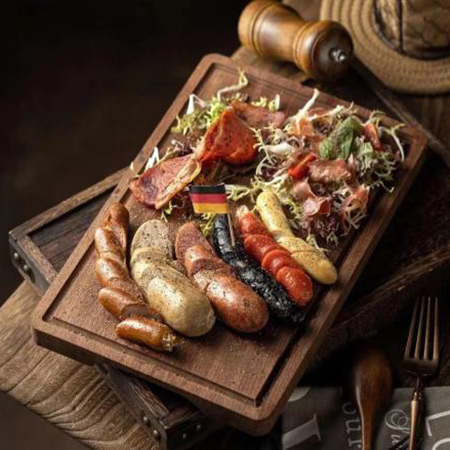Our online classes and training programs allow you to learn from experts from anywhere in the world.
Move over, chickpeas; there's a new kid on the plant-based protein block. Yellow peas are an exceptional source of protein and carbs, and their mild flavor makes them an easy sub for the other beans and lentils in your rotation. Here's what makes this gut-healthy legume so special and how to eat it more often. Plant Based Extraction

According to research on Blue Zones—areas in the world with the highest concentration of centenarians—people who eat a largely plant-based diet live longer. Legumes are a fixture in many of these areas, too.
That's why I often recommend having one vegetarian day per week and loading up on beans, legumes, and other sources of plant-based protein. And as a dietitian specializing in gut health, I also encourage people to eat a variety of foods. Different colored peas like green, yellow, red, and orange bring different phytonutrients to our intestinal flora1 . Our guts thrive on fiber and antioxidants from these colorful dishes.
That's where the lesser-appreciated yellow pea comes in. If you've got a favorite recipe for lentils, you can try making it with yellow peas to get more variety into your diet and improve the microbial makeup of your gut.
A 1-cup serving of cooked split peas provides 16 grams of protein and 41 grams of carbs. They also pack an impressive 16 grams of dietary fiber—making up 58% of your daily value. Since they're a source of fiber and complex carbs, peas have a low glycemic index and therefore they won't spike your blood sugar. They also take longer to be digested and absorbed by your body, so they're an excellent source of long-lasting slow-carb fuel for athletes and those who are trying to lose weight.
Gluten-free and packed with plant-based protein, they can be cooked, mashed, and added to vegetarian and vegan recipes like soups, tacos, or meatballs for optimal protein with less meat. Some Eastern European cultures serve it as a side dish during winter seasons when the seasonal green leafy vegetable supply is low.
My favorite easy yellow peas recipe is inspired by the Ayurvedic kitchari. Originating in India, kitchari is savory, thick, and full of flavor thanks to herbs and spices. It's my ultimate comfort food.
Most Ayurvedic kitchari dishes are made with green or yellow lentils, but yellow peas make for a great sub. Here's a recipe you can follow to make it; sub in peas for the mung beans.
And for busy folks who want a precooked option, this yellow pea pasta is minimally processed and made with just one ingredient: whole yellow peas. I recently served it with meatballs at a dinner party and everyone was surprised by the taste and, most importantly, the firm al dente texture. I've found that most plant-based pasta gets very mushy and sticky, but the yellow peas are somehow able to hold their texture like regular gluten-loaded pasta.
Eating for your gut requires eating a variety of phytonutrients and protein sources. Yellow peas are a fiber- and protein-rich food that even has some longevity research to back it up. So go ahead and add the underrated legume into your soups, main courses, and side dishes for a filling and delicious twist on classic recipes.
Ella Davar, R.D., CDN, received her education in Nutrition Science from New York University, and an Integrative Nutrition Certification from the Institute for Integrative Nutrition. Her book, Driven Women Wellness: Your guide to self-care, offers a cohesive list of priorities, plan of action and hacks that help her clients reach their wellness goals while managing busy lifestyles in a healthy way. Davar specializes in integrative anti-aging nutrition and lifestyle interventions to help women of all backgrounds manage weight, stress, diet, and various health conditions.

MAP © 2009 - 2022 MindBodyGreen LLC. All rights reserved.